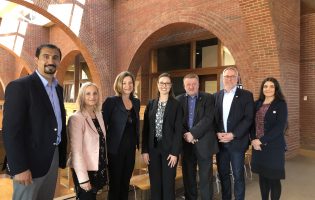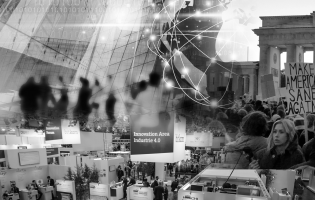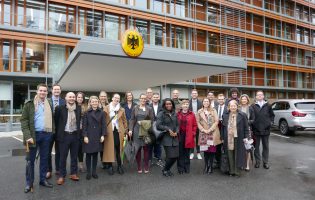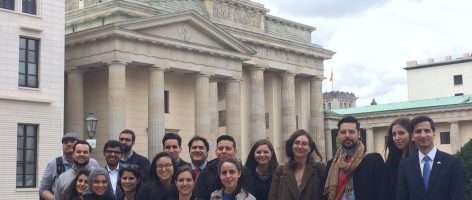
The Mainstream Strikes Back with Victories in Saxony and Brandenburg, but the AfD Is Not Going Away
Voters in Brandenburg and Saxony today rendered judgments that reach well beyond the borders of two states that used to be part of the German Democratic Republic, as my colleague …

The 2019 Regional Elections in the East: Small States, Big Impact
On September 1, the eastern German states of Brandenburg and Saxony will elect new state parliaments (Landtage). Both are relatively small states with 2.5 million and 4 million people respectively …
The Future of the Society, Culture & Politics Program
Senior Fellow and Director of the Society, Culture & Politics Program Dr. Eric Langenbacher lays out his vision for the future of the program.

Democracy and the Double Standard: European Parliament Responses to Ursula von der Leyen
Feminist scholars on both sides of the Atlantic have long assumed that there is a positive correlation between women’s numerical presence in legislative bodies (descriptive representation) and their ability to …
Recent Authors
AGI provides knowledge, insights, and networks as tools to solve the challenges ahead.
Support Our Work
Wunderbar Together in Southwestern USA
In the course of the AGI project “Integration: Made in Germany” the group travelled through the Southwest region of the United States from March 17 to March 22, 2019. It …

Lies About Migrants
Immigration Policy in a Time of “Post-Truth” Politics In a June 6, 2019 seminar, DAAD/AGI Research Fellow Beverly Crawford Ames argued that misinformation, exaggeration, distortion of facts, and fabricated content—all …
Eric Langenbacher To Join AGI as New Senior Fellow and Director of Society, Culture & Politics Program
AGI is pleased to announce that Eric Langenbacher has been selected as the new Senior Fellow and Director of the Society, Culture & Politics Program. Dr. Langenbacher succeeds Dr. Lily …







